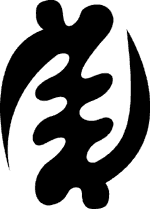Get a digital sports watch with a large dial. There are monitors made for just what you want, or so I've heard --I never owned or used on. By the time these things came along I was no longer competing. I literally would take a piece of paper and a pencil. (If you want to be serious, use graph paper. Make a column for each day. You'll end up with a nice chart. I think there are even wrist monitors that do that and give you a print out ... but the principle is the same.
Your max hr will depend on your age and general condition, especially weight. There is a formula, but I think you'd better look up the current one. In general, the optimal training rate (where you get the most benefit) is around 80% of your max. But, if you do 70%, you're in a safer range and still have good training effect, though not enough compared to an elite athlete's regime. My opinion has always been to "take it easy at first." Your worst enemy is over-training.
Anyway, now I'm going over to amazon to see about the new heart rate monitors. Ok, done: I'm going to order one of these. Timex T5G971 Unisex Sports Personal Heart Rate Monitor Watch
http://www.amazon.com/gp/product/images ... 400&sr=8-3Amazon.com Product Description
Combining stylish looks with heart rate monitoring features, this larger Timex Personal Heart Rate Monitor watch (model T5G971) can be worn by both men and women. It features a chest strap heart rate monitor, easily accessible function buttons, durable resin case, and comfortable resin strap with a stylish tapered profile. For integrating heart rate monitoring into your training, this watch enables you to continuously track your heart rate during exercise as well as pre-set target heart rate zones with alarms that notify you when you are out of the zone. It also offers an automatic activity timer and a workout review that recalls activity time and average/peak heart rates. This streamlined watch also has a month/day/date display with 12/24-hour time.
The Indiglo night-light uniformly lights the surface of the watch dial using patented blue electroluminescent lighting technology. It uses less battery power than most other watch illumination systems, enabling your watch battery to last longer. The watch is water resistant to 30 meters (100 feet), which protects it from rain and water splashes. All Timex heart rate monitor sensors have batteries that can be replaced by consumers without requiring them to be returned to the manufacturer.
Product Description
Zone Trainer Digital Heart Rate Monitor with a gray resin strap and digital display with orange accents, INDIGLO night-light, 100-hour chronograph, 27-lap memory, 100-hour countdown timer, Alarm with 5 min back up, Water resistant to 50 meters, Target zones, Zone trainer, Average heart rate, Time in zone, Calories burned, Recovery timer, Max heart rate, Digital transmission, Data Recorder compatible
"A man is rich when he has time and freewill. How he chooses to invest both will determine the return on his investment."



